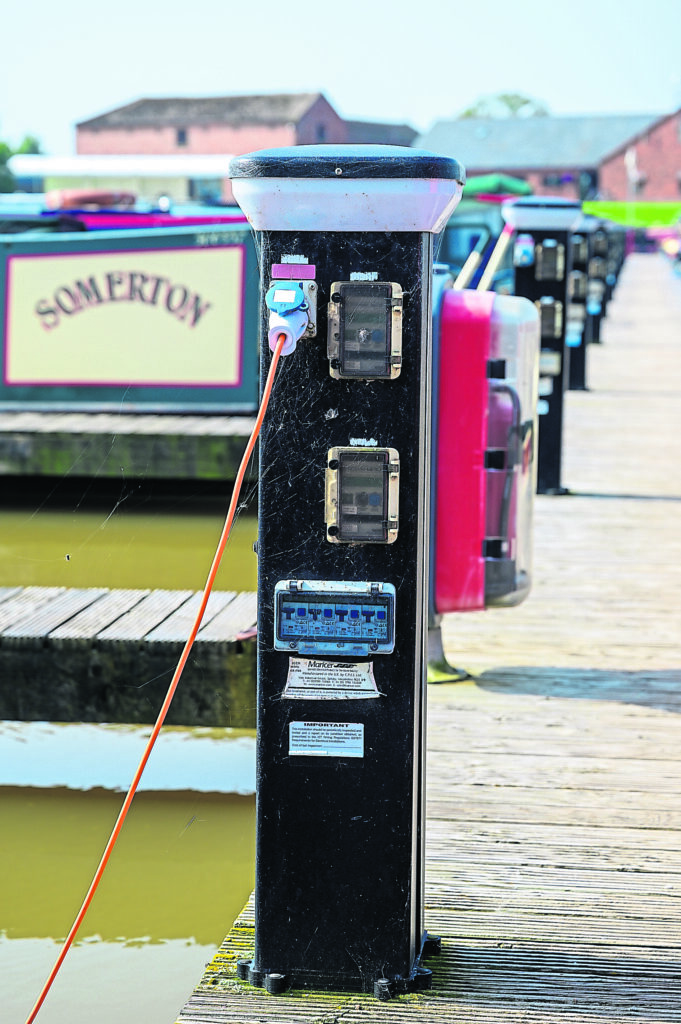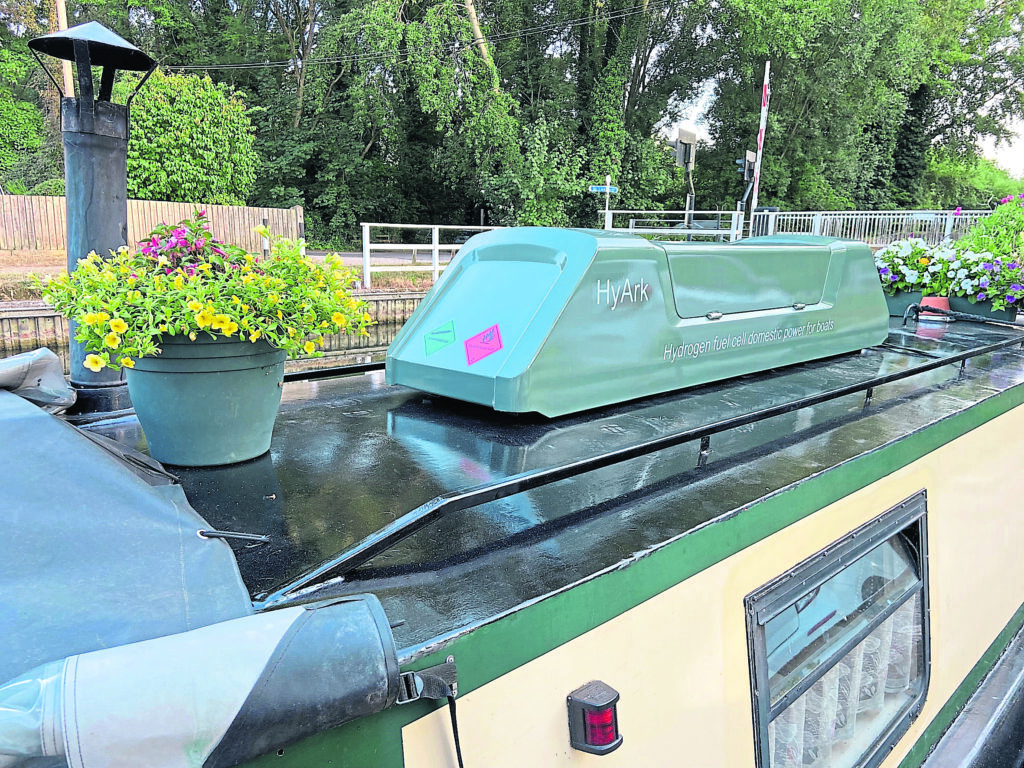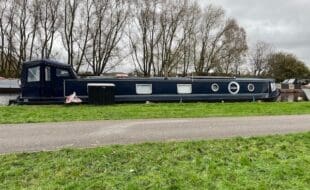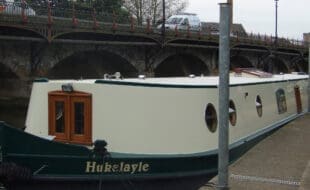POLITICIANS were brought up to speed on how the UK inland waterways industry can work towards achieving net zero on leisure craft at a recent meeting in Westminster.
Hosted by the All-Party Parliamentary Group for the Waterways (APPWG), its chairman Michael Fabricant, MP for Lichfield, welcomed speakers Bowman Bradley, chairman of the IWA/RYA/Cruising Association Joint Working Group and Simon Lawford, technical sales and renewable fuels manager of Crown Oil.

Boaters, representatives from boating organisations and other interested parties attended virtually via Zoom and were given the opportunity to ask questions following the presentations.
Bowman started his presentation by explaining that there are around 80,000 powered leisure boats in the UK which need energy for propulsion and domestic use such as hot water, cooking and space heating.
Diesel is currently the main fuel for propulsion although there is occasional use of electrical power provided by alternators, stand-alone generators and PV (photovoltaic) cells. Water is heated by electricity, waste engine heat or heat pump; cooking with fossil fuels, mainly LPG and space heating using fossil fuels as well as those used for hot water.
“There were some electrically powered boats about when I first started looking at this in 2020; now if you go to shows like Crick, most of the boatbuilders will offer you electric propulsion,” Bowman commented.
On the subject of hydrogen fuel cells, he posed the question: “The technology is there but where do you get the hydrogen from?”
Referring to roof-mounted hydrogen fuel cell generators, a member of the online audience added that boats with these would not go through some of the bridges he knew.
Bowman went on to say that this initiative is being driven by three leading leisure boating organisations. “Boaters are already very aware of the environment around them and recognise that new technology will eventually allow us a transition to net zero sources but leisure vessels tend to be well maintained and last for many decades.” Many of these boats would still be around in 2050.
“Our objective is to rapidly decarbonise the UK leisure boating sector… and ensure that the fuels used are both sustainable and affordable.”
Although electrically powered boats are increasingly being built and those using diesel as fuel will reduce in number, over the long term very few existing boats would be converted to electric drive which is expensive and quite a big job.
Successful trials
Bowman went on to discuss the use of HVO (hydrotreated vegetable oil) which he said is accredited for modern boat engines. IWA had recently held successful trials for its use in traditional boat engines, heaters and cookers. It is cleaner with lower particulates than mineral diesel.
Government-managed subsidy RTFC (Renewable Transport Fuel Certificates) in respect of HVO only apply to fuel used for propulsion of inland waterway craft and domestic use is excluded. Most leisure boats only have one fuel tank and there are different tax and duties applied to mineral diesel when they refuel (the 60/40 split) and this also applies to HVO which is expensive and complex to market so boaters can’t and won’t buy it.
“Our immediate objective is to persuade the various government departments involved to adopt policies that will make HVO affordable and available to leisure boaters, recognising the supply of HVO is limited,” Bowman stressed. Policy is to use it only where there is no alternative energy source but it is now recognised as a suitable fuel for off-grid homes.
He concluded with a plea by the Cruising Association, RYA and IWA on behalf of leisure boaters to help achieve net zero.

Simon Lawford said Crown Oil has been importing HVO since 2019 and was one of the first. The oil comes from Europe, the US and the Far East as it is not currently produced in the UK. They supply the construction and road transport markets, the inland waterways having proved quite a difficult one although there is no problem getting it out to the rural areas.
He explained that HVO is manufactured from 100% renewable and sustainable waste derived from raw materials accepted by RTFO (Renewable Transport Fund Obligation) and certified by ISCC (International Sustainability and Carbon Certification).
Pointing out that palm oil is no longer used, Simon added that HVO is pure paraffin – a synthetic version of the fossil fuel dug out of the ground producing no smoke and much less particulate matter – and is both biogenic and compatible with marine (wet) environments.
He went on to outline the legislation that they have to navigate in respect of the supply of biofuels for which there is no incentive at this time.
Question time
The lack of infrastructure for electric charging was one of the subjects raised in the question-and-answer session that followed the two presentations, one boater pointing out that there was nothing along the Rochdale Canal between Hebden Bridge and Manchester.
Bowman said he was confident that the technology will come along but agreed that, like the roads, there is not enough infrastructure and it will take a long time to get it.
Narrowboater Vanessa Thomas asked why the UK couldn’t make its own HVO and recycle weeds such as pennywort.
Simon replied that there is no technical reason why any biomass can’t be used but it would take a lot of pennywort for not a lot of HVO; it would have to be pooled with other vegetation.
Answering a question about the use of solar power for propulsion, Bowman replied that while it could make a very good contribution and some people claim they have enough power, he suspected that this was in the summer months. He agreed with Michael Fabricant’s observation about the similarity to hybrid cars of electric boats with small diesel-powered generators.
Eion Harris of the Canal & River Trust said that electric propulsion would require significant investment in infrastructure, questioning how this could be done in the current economic climate. He also asked if there were any standards emerging.
Bowman replied that IWA’s Sustainable Boating Group has been drafting standards and has asked the Canal & River Trust for its support.
Wilts & Berks Canal Trust chairman Mark Holliss asked how the price of HVO compares with regular diesel to which Simon replied that it is about 34p per litre more expensive and Peter Walker suggested that HVO is a transition fuel while the fleet can be electrified.
Tracey Clarke of the Accessible Waterways Association, also a roving trader and continuous cruiser, asked if it was too simplistic to abolish the 60%/40% split for red diesel between propulsion and domestic use and apply one charge.
Simon Baynes, MP for Clwyd South, asked what discussions had been held with government on these issues. Bowman replied that they had received a response from the Department for Transport but recognised that it was a multi-departmental matter and was planning to open a dialogue at a meeting in the afternoon.
Ross Wombwell of the RYA added that they should be made aware of the ICOMIA (International Council of Marine Industry Associations) report.
Michael Fabricant closed the meeting by thanking all who had attended, in person and online.





